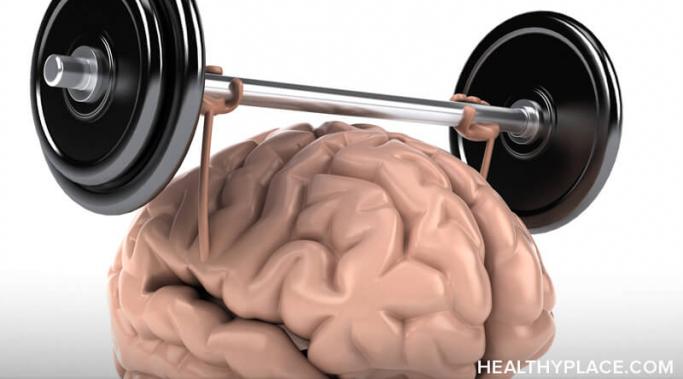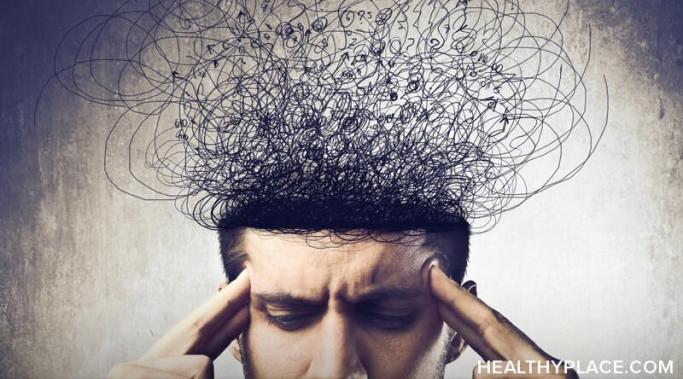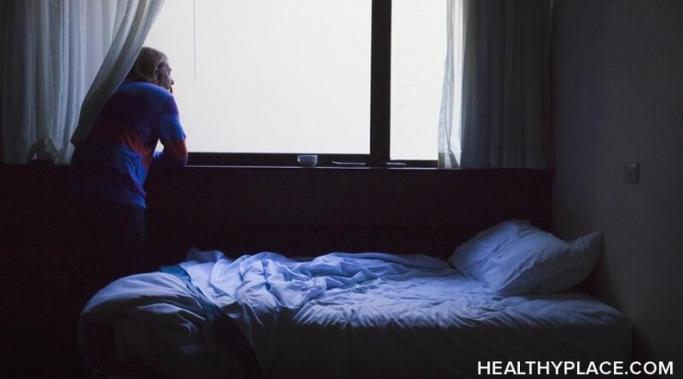Anxiety affects us deeply and in many ways, including taking over our thoughts. Anxious thoughts can be loud, obnoxious, repetitive, and bothersome. They seem real and accurate. We think something; therefore, it must be true. In reality, however, our thoughts--especially anxious thoughts--aren't reliable. There are many different types of anxious thoughts that become repetitive patterns, and because they repeat in our heads, they feel very real. We come to believe them, and this affects our actions and overall happiness. Here's a look at one particularly bothersome anxious thinking pattern, all-or-nothing thinking, and an exercise to change these anxious thoughts.
Effects of Anxiety
Do you play tug-of-war with your anxious thoughts? I often find myself playing this exhausting, time-consuming game, and it can be frustrating. If you find yourself trying to let go of anxious thoughts, but they keep returning, you could be playing mental tug-of-war with anxiety. It's something that happens automatically and repeatedly, but you don't have to play. If you tend to overthink, playing tug-of-war too often, and would rather do something else, read on for insights into this annoying mental game and ways to put down the rope.
Those who read this blog may remember that it was a little over a year ago that I lost my apartment, almost all my possessions, and nearly my life in a massive fire. In the year since the fire, I have tried my best to return my life to some degree of normalcy. This has proved to be much more difficult than I could have imagined. Having never had to come to terms with a traumatic experience such as this, I’ve learned that the aftereffects of such traumas can be surprisingly unexpected.
I’m far from the first person to discuss the above topic. However, I feel it is important to continually raise awareness of the social causes of anxiety until those causes are recognized more broadly.
Anxiety-related brain fog help is available. That's important because brain fog is a frustrating occurrence that can disrupt daily functioning and impact how we feel about the quality of our lives. An experience rather than a medical or mental health diagnosis, the brain fog that can accompany anxiety can make us feel disorganized and forgetful, frustrated that we can't seem to make a simple decision--and then even more anxious because of it. That this mental fogginess can be an effect of anxiety rather than an actual mental illness is positive news. This isn't something inherently wrong with the brain, which means that we can directly address it. In the spirit of blowing away the fog and clearing our mind, here are 12 practical tips for helping anxiety-related brain fog.
Anxiety-related brain fog is an annoying effect of anxiety that can be exhausting, frustrating, and downright discouraging. With anxiety, brain fog is mental exhaustion that spreads through our whole being and seeps in between anxious thoughts, seeming to blunt all thoughts but those pesky, anxious ones. It can be difficult to work our way out of brain fog because it turns thinking and problem-solving into a gargantuan task. Even when motivated to clear it, it's hard to know where to start. Read on for more on anxiety-induced brain fog and how to emerge from it.
Anxiety and stress are similar in nature. They both are typically unwelcome invaders intruding on our lives, rudely disrupting our inner peace and calm. Because they are related, people often use the terms interchangeably. Technically, there is a slight difference between stress and anxiety. For each of us in our daily lives, though, does the difference really matter? Read on, and decide for yourself.
If you'd like to beat anxiety, I offer you a hearty welcome to the club. As a long-term member and someone who has been able to overcome the grip that anxiety used to have on me, I have food for thought: Shift your focus away from beating anxiety. Notice that I didn't say I've overcome anxiety but, instead, the grip it had on me. Anxiety is part of the human experience, and it does have a place in our lives. It does not, however, deserve to be the center of our thoughts, feelings, and actions. To break free from the grip anxiety has on you, think less about anxiety, and focus on what you need instead.
Many people experience both anxiety and depression, and I'm one of them. About a month ago, I had what’s called a major depressive episode. Though I am not at my lowest point anymore, I am still dealing with the aftereffects of that episode and probably will for some time. This is not the first time I’ve had to deal with such an episode, so I think it is appropriate to devote an entry to attempt to come to terms with it. Please forgive me if I don’t sound enthused; my drive continues to be shot. Despite that, I will do the best I can.
Anxiety messes with lives. That's really the bottom line of anxiety, isn't it? It barges into our lives, uninvited, and acts like a boorish guest. It causes all sorts of miserable symptoms, which are annoying enough as it is. Unfortunately, anxiety isn't just confined to a set of symptoms, but, instead, inserts itself into our lives and has negative effects that cause disruption. While the effects of anxiety are unique to each person who experiences any type of anxiety, there are some effects that many people with anxiety share. In the spirit of "misery loves company," and so you know you're not alone, here are common effects of anxiety--six ways anxiety messes with life.









